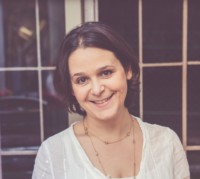My Approach
I think of Psychotherapy and psychoanalysis as a developmental process that occurs in the space between two people. It is a pause in a difficult world that enables reflection, thinking, and questioning. I understand this process not only as an exploration of the inner world, the psyche, but also as an opportunity to unfold and rethink the world we live in and our place in it.
We all have something to work on - to understand better, solve or change- it could be a specific problem like a relationship; a job difficulty; immigration; illness or death; identity crisis; trying to fit in; an oppressive power relation regarding identity; a specific fear or a bothering thought that occupies too much space in our lives. Or it could be a general feeling of uneasiness- anxiety, depression, restlessness or emptiness; a blurred sense of meaning being lost or a discontent from our place in life, a yearning for change.
These crises could also mean an opportunity from which we can develop ourselves and grow. In a non-judgemental reassuring environment, through an intimate relationship that becomes a witness of our lives, these difficulties could turn into a process of change: developing strong self-esteem, understanding our position in life- our goals and ambitions as well as our wounds and painful places and finding the power to heal ourselves.
My perception of the analytic work is one that does not apply only to our inner world and to the relation between the two people sitting in the room- the patient and the analyst. I situate our discourse in the broader social and cultural structure and understand the therapeutic process as an opportunity to rethink our position in the world. As I elaborate on my website (www.psychotherapy-cambridge) - a practice that is informed by a political philosophy, that recognises cultural and social environment as a key element for emotional well-being, is also an ethical position that goes hand in hand with therapeutic transformation.
About Me
I’m a qualified psychoanalyst and a psychotherapist working in private practice just outside Cambridge, UK. I’m a Medical Doctor (MD), a researcher (Ph.D.) of Gender, Psychiatry, and Psychoanalysis.
I'm a qualified member of The SITE for Contemporary Psychoanalysis which is registered with the Council for Psychoanalysis and Jungian Analysis College (CPJA) of the United Kingdom Council for Psychotherapy (UKCP).
I have worked for several years in a mental health hospital with people coping with a wide range of psychiatric disabilities and for more than a decade now I have continued to see people - to listen, discuss and witness their lives in a private setting both for individuals and in groups.
My practice is based in a beautiful rural area in south Cambridgeshire, 5 min. from Cambridge city. In this quiet relaxing setting, I offer a clearing, a secure space to explore the psyche.
I work with
- Groups
- Individuals
Special Interests
Like all UKCP registered psychotherapists and psychotherapeutic counsellors I can work with a wide range of issues, but here are some areas in which I have a special interest or additional experience.
Types of Therapies Offered
- Psychoanalyst


